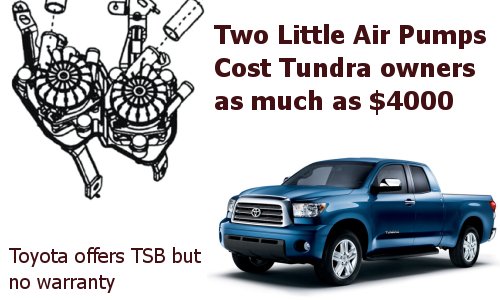 All Entries Tagged With: "emissions"
All Entries Tagged With: "emissions"
Why Don’t Diesel Engines Sell in The USA?
Diesel engines are superior to gas engines in a few critical ways:
- Diesel engines are more efficient due to the thermodynamic benefits of their higher compression ratios
- They’re much more durable – diesel engines commonly run 2-3 times longer than a comparable gas engine
- They put out more torque for any given RPM than a similarly sized gas engine, meaning that a tiny little diesel engine can power a small car very efficiently (Ford’s euro-spec Fiesta diesel gets 60+ mpg with a 1.6L motor)
Point #1 and #3 are very important, as they are the main reasons that diesels are so popular around the world. In Europe, for example, about 50% of the vehicles (be they tiny little commuter cars or big trucks) are powered by diesel. Considering that the average cost of fuel in most Western European countries ranges between $6-8 per gallon (1.27-1.72 euros per liter), the fuel economy benefits of diesel engines make them a very popular option.
Yet in the United States, diesel vehicles are barely 5% of the market. Why? What is it about diesels that people in the USA dislike?
The answer? Emissions rules, the “carbon penalty,” and a myriad of other smaller issues keeps diesels from selling. What follows is an attempt to explain – comprehensively – why diesels don’t (and probably won’t ever) sell at any substantial volumes in the USA.
Today Is Unofficial “Lobby For The Hobby” Day
I recently became aware of two things:
1. Hot Rod, Motor Trend, Four Wheeler, Off Road, and others (90 web and print properties total) are all owned by one company. I guess I should have paid closer attention.
2. Today, November 1st, 2010, is SEMA’s unofficial “lobby for the hobby” day, where anyone who is an avid automotive enthusiast is encouraged to think about recent regulatory changes that endanger automotive hobbies. For example:
- Changes in off-road access rules for federal lands
- Changes in federal fuel economy and emissions requirements
- Changes in state emissions laws (California, I’m looking at you)
While laws are always changing, the case could be made that the pace and direction of these changes has been “anti-automotive” over the last 2 or so years. SEMA and Source Interlink Media want you to think about these issues today, which just happens to be the day before election day.
Is this a legitimate gripe? Judge for yourself.
Tundra and Sequoia $4000 Air Injection System Problem
UPDATE: As of November 2011 (nearly 18 months after this problem first came to our attention), Toyota has finally announced a special service campaign to cover this repair. You can learn more about Toyota’s Air Injection Pump Extended Warranty Campaign here.
It’s been brought to our attention that many 2007 or 2008 Tundra owners are being asked to replace their truck’s air induction pump assemblies and/or air injection switching valves at a substantial cost. The pumps and/or valves seem to be malfunctioning at about the same time that Toyota’s 3 year/36k mile warranty ends, sometimes at a total cost of more than $4,000. Obviously, this is a major concern for any 2007 and older Tundra owner.

Some Tundra owners face air injection pump repairs in excess of $4,000
Here’s the background on this problem, what’s happening, and what you can do if this problem effects your Tundra.
Search terms people used to find this page:
- https://tundraheadquarters com/tundra-sequoia-air-injection-induction-pump/
- tundra error code air pump
- valve tapping on a 2008 toyota sequoia

